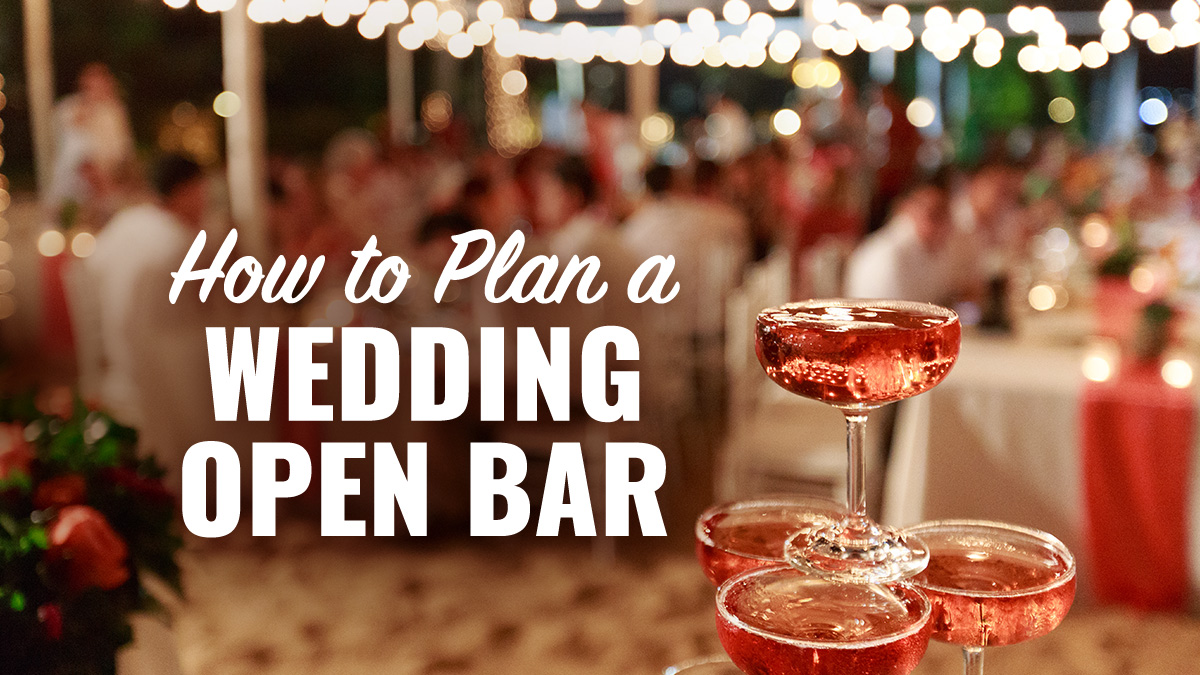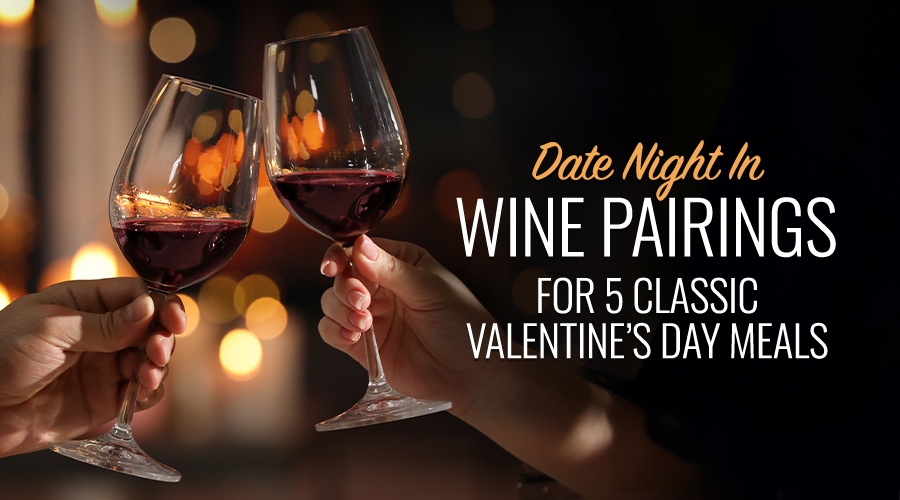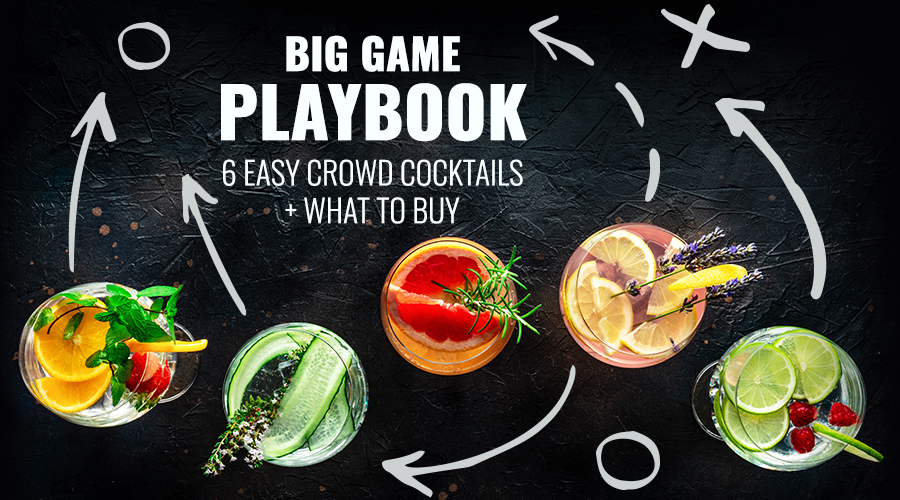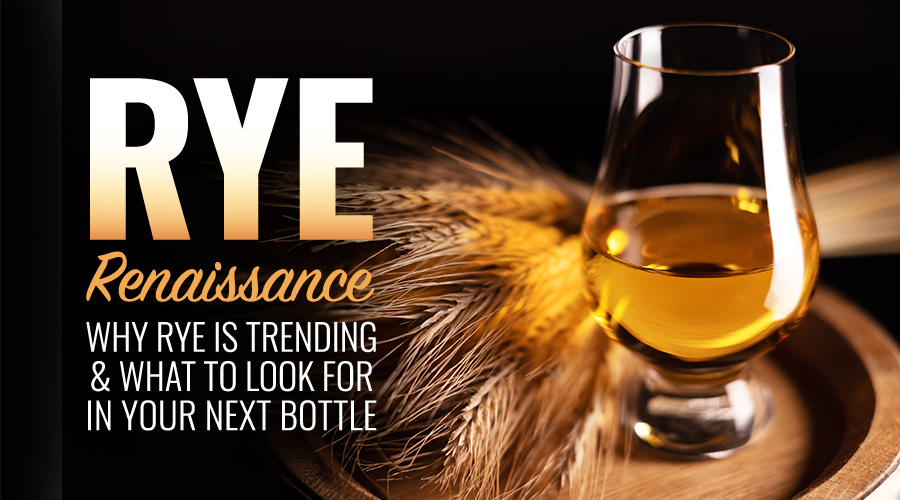
You’ve secured the venue, lined up the perfect caterer, and even curated a playlist that’s bound to get everyone moving and grooving. But there’s still a big decision left to be made: What about drinks? Are you going to have a bar? You’ve heard about an open bar for a wedding and maybe even attended one that was a great experience, but what does hosting one entail?
You’ve come to the right place! Spec’s is here to help with this overview that will give you a better understanding of what an open bar is and everything you need to know when considering whether you should have one at your wedding. So let’s take a closer look at some of the finer points of the open bar.
WHAT IS AN OPEN BAR?
An open bar is a hospitality feature where guests enjoy a wide range of beverages, both alcoholic and non-alcoholic, without having to spend any of their own money. Hosted by the couple, it allows attendees to order drinks freely throughout the event, which creates a festive and inclusive atmosphere. This generous provision is often seen as a gesture of gratitude and celebration, encouraging guests to relax, mingle, and dance the night away in high spirits. An open bar can be tailored to the couple’s preferences, featuring everything from fine wines and craft beers to signature cocktails, ensuring a memorable experience for all.
You can picture your potential open bar: an elegant oasis where your guests drink freely, liberated from the task of having to pay for each drink as they celebrate your union. An open bar is a generous gift for your guests, one where you graciously cover the cost for an array of drinks, both alcoholic and non-alcoholic alike.
The term “open” tells everyone of its accessibility to all guests of legal drinking age at your event. There’s no need for them to dig out their wallets or count coins – they simply approach the bar, order a drink, express their gratitude to the smiling bartender, and join in the festivities!
The open bar transcends mere drink offerings; it embodies the atmosphere, your generous spirit, and the pure delight of celebrating the momentous occasion with those closest to you. Hosting an open bar is a testament to your dedication to honoring and maintaining connections, increasing the laughter, and ensuring a swell of positive energy throughout your event. It’s a grand gesture, and one your guests will not soon forget.
HOW MUCH IS AN OPEN BAR FOR A WEDDING?
Delving into the specifics of hosting an open bar for a wedding requires a focus on budgeting, selection, and essential concerns that will ensure seamless service and an overall great time.
Budget Considerations
Determining your budget for an open bar involves several variables. Costs can vary widely, typically ranging from $15 to $45 per guest. This variation is influenced by the number of guests, venue policies, the variety of beverages offered, and the choice between standard and premium liquor options.
Simplify your party planning with this straightforward guide to calculating beverage amounts, which will help guarantee that you have ample supply.
Step one – How many drinks?
Start by estimating the drink consumption per guest to determine your total beverage requirement. Typically, each guest might consume two drinks in the first hour and one drink for each subsequent hour. Here’s a helpful formula to keep on hand:
Number of guests x Estimated number of drinks per guest = Total number of drinks
Step two – Beverage breakdown:
Decide how you wish to divide up wine, beer, and liquor. A simple approach is to evenly distribute the total drink count among these three categories.
WINE
A typical 750ml bottle of wine can provide around five standard servings. To find out how many bottles you need, divide the estimated total glasses of wine for all your guests by five. If wine is the sole beverage option, a practical guideline is to allocate half a bottle per attendee, and then round up and/or add a few more since the consumption patterns among guests will differ, and, of course, some guests will not drink at all.
When it comes to champagne or sparkling wine, which is often served in smaller flutes, a 750ml bottle can generously fill about six glasses. This makes sparkling wines an excellent choice for toasts or special moments during your event, adding an elegant touch to celebrations. Remember to consider the nature of your event and the preferences of your guests when deciding between still and sparkling wine options.
LIQUOR
When planning for mixed drinks, it’s common to use 1.5oz (45ml) of liquor per cocktail. This standard serving size means that a 750ml bottle of liquor can make approximately 16 drinks, a 1-liter bottle about 22 drinks, and a 1.75-liter bottle around 34 drinks. To determine the number of bottles you’ll need, divide the total estimated number of liquor servings by these quantities.
In addition to the liquor, consider the mixers required for your cocktails. A good rule of thumb is to allocate 1 liter of mixers such as tonic water, soda, or juice for every three guests. This ensures a balanced selection of mixers to complement the liquor, catering to various tastes and preferences. Remember to consider the types of cocktails you plan to serve and select mixers that will best suit these drinks. You don’t need too many, just choose three or four options for some variety.
BEER
For sizable events, a keg is a wise option. A standard half-barrel keg, which holds 15.5 gallons of beer, can provide approximately 200 servings when using 10oz cups. This choice not only caters to a large number of guests but also reduces the need for managing numerous bottles and cans, making cleanup easier. Additionally, kegs can offer a wider selection of beer, including craft options not always available in bottles or cans. When opting for a keg, ensure you have the necessary equipment like a tap and proper cooling facilities to keep the beer at an optimal serving temperature throughout the event.
WHAT ARE THE ESSENTIAL COCKTAILS FOR AN OPEN BAR?
In addition to a selection that includes beer and wine, most bartenders will typically offer a range of three to five spirits – such as vodka, whiskey, rum, gin, and possibly tequila – accompanied by mixers like juices, soft drinks, tonic, club soda, and simple syrup, along with standard garnishes like lemons, limes, and cherries. This setup enables your bartenders to create a wide variety of straightforward and classic cocktails (e.g., vodka sodas, rum and cokes, gin and tonics, whiskey and ginger ale), enabling them to cater to the diverse tastes of your guests and covering all of the essentials.
You may also wish to add a signature cocktail to the menu, one that adds a distinctive touch or a dash of panache to the bar menu. This special concoction can reflect the personal tastes of the bride and/or groom. It might also align with the wedding’s theme or season, or it could reflect something unique about the couple. Perhaps they met as waiters in a Mexican restaurant and would like to serve Margaritas. Or maybe they bonded over a movie or tv show that featured a lead character whose favorite drink was an Old Fashioned or a Cosmopolitan. A signature cocktail provides a distinct flair to your wedding and can add to the memorable celebration of your union.
HOW MUCH IS AN OPEN BAR FOR 100 PEOPLE?
Using the information above, let’s break it down first by type: wine, liquor, and beer. We’ll use average prices and the previously discussed consumption rates. (Remember, we’re making some assumptions and estimations here, so this is a general idea of the cost.)
Assumptions:
1. Wine: Assuming an equal split between wine, liquor, and beer, about 33% of the total drinks will be wine. With the estimate of half a bottle of wine per person for a wine-exclusive event, we’ll adjust to about a third of that for a mixed-drink event, equating to roughly 1/6th of a bottle per person for 100 guests.
2. Liquor: Similarly, a third of the drinks will be spirits. Assuming two drinks in the first hour and one drink for every subsequent hour, we’ll estimate a total of four drinks per person for a three-hour event, equating to approximately 133 drinks for liquor.
3. Beer: The remaining third of the drinks allocation will be for beer.
Wine:
- Amount: 100 guests (1/6 bottle per guest) = about 17 bottles (rounded up)
- Cost: Assuming an average bottle cost of $15, total wine cost = 17 bottles at $15/bottle = $255
Liquor:
- Amount: For 133 liquor drinks, assuming an average of 16 drinks per 750ml bottle, you’d need approximately eight bottles (rounded up).
- Cost: Assuming an average bottle cost of $25, total liquor cost = eight bottles at $25/bottle = $200
Beer:
- Amount: Assuming 1/3 of the total drinks are beer, and each guest consumes four drinks, you’ll need 133 beers. A keg might be more economical for this number of servings.
- Keg cost: Assuming one half-barrel keg is sufficient (about 200 servings), and the average cost of a keg is $200, total beer cost = $200 (also note that most kegs require a refundable deposit, usually around $50-$100, not included in the cost estimate here)
Mixers for Liquor:
- Amount: Assuming one liter per three guests, you’d need approximately 34 liters.
- Cost: Assuming an average cost of $2 per liter for mixers, total mixer cost = 34 liters at $2/liter = $68
Total Beverage Cost:
- Wine: $255
- Liquor: $200
- Beer (Keg): $200
- Mixers: $68
- Total: $723
This estimate is simplified and can vary based on your specific choices, local prices, and the duration of your event. This estimate is only for the beverages and does not include costs for bartending services, gratuities, or additional equipment that may be required.
Which leads us to the next question…
WHAT IS THE AVERAGE COST FOR BARTENDERS FOR AN OPEN BAR WEDDING?
If you wish to hire a bartender in the U.S., you can typically expect to pay in the range of $275 to $400 per bartender. The rate is influenced by factors like guest count, event type, and drink complexity. Rates can be hourly or based on a minimum set of hours, and vary based on the number of guests at the wedding, with small weddings composed of less than 50 guests to large ones with over 100 attendees. Costs escalate with guest numbers, as more bartenders or assistants (a.k.a. bar backs) might be needed, especially if you’re going to have intricate drink menus.
While bartenders might charge $40 to $60 per hour, including a base fee, you can expect bar backs to usually cost less, $25 to $35 per hour, due to the fact that it is a less-skilled position.
A few important things to note:
- When hiring, ensure the bartender is licensed for your state and venue.
- Discuss in advance any special drink requests and any specific cocktails that you may wish to serve to ensure that they know how to make the drink and they have the proper tools and ingredients.
- It’s important to be aware of your event’s timeframe, as bartenders typically calculate their fees based on an hourly rate, making the duration of your party a key factor in determining their charges. This also eliminates any surprises at the end of the night, though you may wish to discuss fees if you decide that everyone is having so much fun that you’d like the bar to be open an extended amount of time.
HOW DO I TIP BARTENDERS AT AN OPEN BAR WEDDING?
When it comes to tipping, if the venue you’re using provides bartenders as part of their service package, then gratuities are typically included in the overall cost. However, if you’re contracting a separate bartending service, check if they expect an added tip for their team.
Regarding the amount, if gratuity isn’t included, consider tipping 10–20% of the total alcohol expenditure, which should be distributed among the bartending staff, including bar backs. This tip is best given at the end of the night, once the total alcohol consumption by your guests has concluded.
DO GUESTS NEED TO TIP?
The simple answer is no, your guests should not tip. Also avoid placing tip jars at the bar. It may seem like a considerate thing to do, but best etiquette advises against it. An open bar means your guests do not reach into their pockets at any point for anything.
And there you have it! A brief how-to guide on the ins-and-outs of hosting an open bar at a wedding. Spec’s hopes you found this helpful! Please take a moment to peruse our website and check out our amazing selection of wine, beers and spirits that you may want to consider serving on your big day!
An open bar at a wedding is a service where guests can enjoy unlimited drinks without having to pay for each individual drink. The cost is typically covered by the hosts of the wedding.
Consider factors such as your budget, the preferences of you and your guests, and the atmosphere you want to create. An open bar can enhance the guest experience, but it’s essential to ensure it aligns with your overall wedding vision and budget.
There are various open bar options, including a hosted open bar where hosts pay for all drinks, a consumption-based open bar where hosts pay for the amount of alcohol consumed, and combination packages that offer a mix of both.
The amount of alcohol needed depends on factors such as the number of guests, their drinking preferences, and the duration of the event. It’s essential to estimate carefully to avoid running out or overspending.
Offer a variety of options, including beer, wine, spirits, and non-alcoholic beverages, to accommodate different tastes and preferences among your guests.
Train bartenders to recognize signs of intoxication, offer non-alcoholic options, and provide transportation alternatives for guests who may need assistance getting home safely.
You’ll need bartenders to serve drinks, as well as equipment such as a bar setup, glassware, and ice. Consider hiring professional bartenders or coordinating with your venue to provide these services.
Set a budget upfront and consider options such as limiting drink choices, setting a drink ticket system, or offering a limited open bar during specific hours to help control costs.
Offering specialty cocktails can add a personal touch to your wedding and enhance the guest experience. Consider incorporating signature cocktails that reflect your theme or preferences.
Make sure to obtain any necessary permits, adhere to local alcohol laws and regulations, and coordinate with your venue to ensure smooth delivery, setup, and operation of the open bar.




